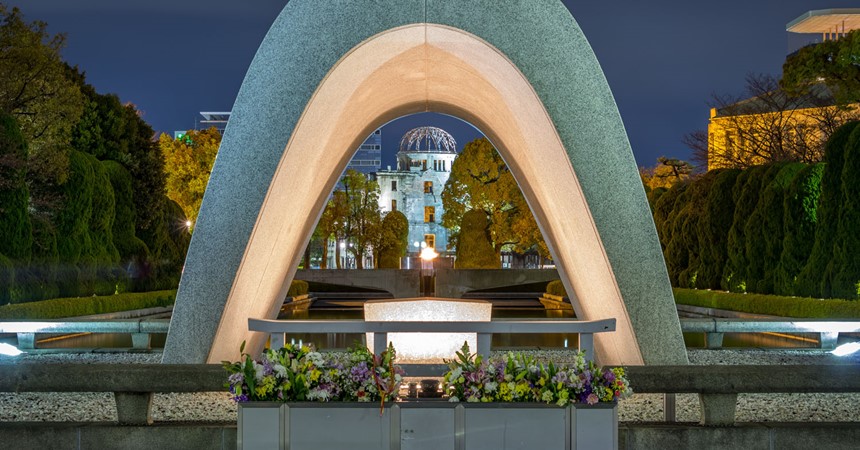For more than 30 years, Newcastle has held an annual event to commemorate the dropping of an atomic bomb on Hiroshima, the act that brought an end to World War II, but cost 100,000 civilian lives. Local group Christians for Peace began the initiative three decades ago with a sunrise observance on 6 August in the grounds of Christ Church Cathedral. Through readings, songs and a silent vigil, the service acknowledged the horrors of war, and its innocent victims.
In recent years, speakers at an evening service on the eve of Hiroshima Day have addressed the issue of peace in a troubled world. Last year, Father Frank Brennan spoke of the Jesuit perspective on peace, influenced by members of the order’s presence in Nagasaki during the bombing of the city.
Newcastle’s Hiroshima commemoration this year is Sunday 4 August 2019. Dr Daryl Le Cornu, history lecturer from Australian Catholic University, and a board member of ICAN, the International Campaign to Abolish Nuclear Weapons, will speak at Adamstown Uniting Church at 6pm.
In 2017, ICAN was awarded the Nobel Peace Prize for its successful attempt to have the United Nations adopt a resolution banning nuclear weapons. The citation referred to ICAN’s efforts to draw attention “to the catastrophic humanitarian consequences of any use of nuclear weapons”. This resolution was approved by a majority vote at the UN General Assembly in September 2017.
Daryl urges all citizens to encourage the Australian government to join more than 125 nations and sign the UN Treaty on the Prohibition of Nuclear Weapons.
“Our country has been a leader in previous treaties to ban biological and chemical weapons, and to outlaw land mines and cluster munitions, but has been slow to add its support for the banning of nuclear weapons,” Daryl said.
ICAN’s origins date back to 2007 when a group of Melbourne doctors, who were members of the Medical Association for the Prevention of War, were inspired by the success of the Campaign to Ban Landmines. Over the ensuing years, the group gained international support in their attempt to abolish nuclear weapons. Success was partially realised with the overwhelming backing of the 2017 UN resolution.
“Nuclear weapons are the most destructive and indiscriminate armaments ever created,” Daryl said. “Surviving victims of the Hiroshima and Nagasaki bombings still suffer from their injuries. Australia’s First Nations people are among victims of British nuclear tests at Maralinga in the 1950s. With the re-elected government we must now renew our pressure to sign this UN treaty.”
Daryl has more than 30 years’ experience teaching modern history and legal studies in high schools and has written textbooks on both subjects. Over his career, he has developed a passion for teaching on human rights, the UN, nuclear disarmament, international law, and global governance. He was a curriculum officer with the NSW Department of Education from 2011-2012.
Since 2013, he has been a curriculum lecturer at two universities. Daryl has been involved with the UN Association of Australia, serving two years as vice-president. He is currently a member of the board of ICAN Australia, and president of the World Citizens Association of Australia.
We invite you all to attend Adamstown Uniting Church on 4 August to hear Dr Le Cornu speak at the 2019 Hiroshima observance service.























































































